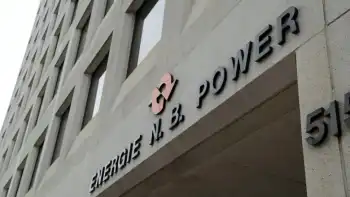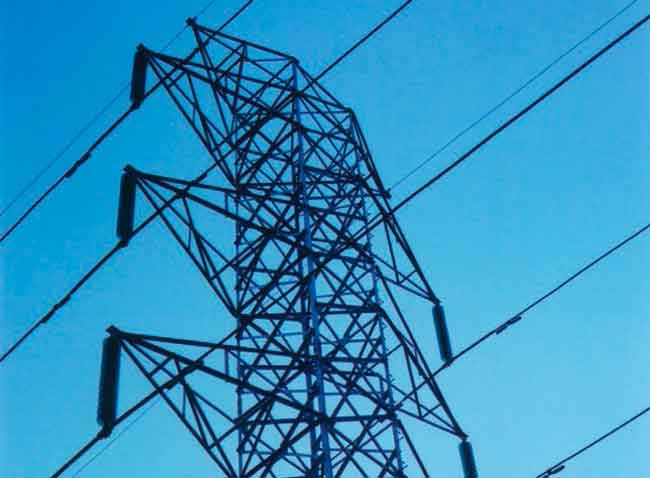Ontario Buys Brownout Insurance
TORONTO, ON -- - The Ontario government will spend $100 million on portable generators to avoid a blackout this summer.
"This is an insurance policy," Energy Minister John Baird said. He noted that the price tag only covers the cost of installing the natural gas powered generators, which can produce 409 megawatts.
If they are used, the cost of power will be on top of that, based on the market rate.
Even Premier Ernie Eves told reporters he was "a little surprised" at the cost of simply setting up this reserve power, which critics say would not be necessary if not for the Tories' failed experiment with privatizing hydro.
But the premier said in the over-all scheme of things, the cost for the portable generators is really a drop in the bucket.
"The cost of producing power in the province on an annual basis is well in excess of $10 billion; $100 million would be 1 per cent of that. I think 1 per cent is a fairly insignificant cost," Eves said.
"I was a little surprised at the cost, quite frankly when it came forward, but it is the appropriate and prudent thing to do in terms of making sure if something untoward happens during the summer months we do have alternative sources of energy." Eves said yesterday.
Reporters suggested weeks ago that it could cost $200 million.
That cost — including power — which was based on New York State's experience with portable generators, was played down by Baird and Eves.
NDP leader Howard Hampton said the Tories have been telling consumers for more than eight years that the private sector would supply the province with electricity.
"That obviously isn't the case because 8 1/2 years later, hydro bills are skyrocketing, industries and businesses are laying off workers and curtailing production because they can't pay the high price of electricity .... It is very clear that the whole privatization-deregulation scheme has led into this disaster situation," Hampton said.
Liberal MPP Michael Bryant (St. Paul's) asked why the government did not put the additional power in place last summer.
"The difference is, your political keister is on the line and the taxpayers are stuck with the cost of this extraordinarily offensive political blackout insurance," Bryant told the Legislature, referring to the provincial election expected this year.
"It is bad enough that the people of Ontario have to pay for the government's incompetence with respect to managing the electricity system, but it is downright offensive that we have to spend hundreds of millions of dollars in brownout insurance to make sure that Ernie Eves and the PC party don't have a political blackout this summer."
Baird said a deal is about to be signed with seven providers to install natural gas powered generators throughout southern Ontario by the end of July, from Sarnia to Kingston, and be in place until early 2004.
Critics were at least relieved that the generators will be powered by natural gas and not diesel fuel as first envisaged.
Last year's long hot summer pushed Ontario's hydro supply to the limit and experts acknowledge it was more good luck than good management that Ontario avoided a power blackout.
"In many respects we don't want them called upon at all. As with any insurance policy you don't want to collect," Baird told reporters.
Baird said it is expected over the course of the summer there will be an additional 2,500 megawatts of new electricity generation, but critics say he is too optimistic given power plant Pickering A's record of missing deadlines for its return to service.
The proposals selected by the government include:
Toronto Hydro, 20 megawatts.
Toromont-Cat, a division of Toromont Industries Ltd., a total of 117 megawatts in Toronto, Markham, Brampton, Bradford, London and Port Colborne.
TransAlta Energy Corp., 60 megawatts in Sarnia.
Trans Canada Energy Ltd., 110 megawatts in Cobourg.
Kingston CoGen LLP, 22 megawatts in Kingston.
Ontario Energy Management Inc., 40 megawatts in Hamilton and Kingston.
Gas Works Energy Corp., 40 megawatts in Markham.
Three of the companies gave money to the Ontario Tories — Toromont-Cat gave $821; TransCanada PipeLines Ltd. gave $7,500 and Toronto Hydro, $349.
The gas-fired generators will be called on to produce power at peak periods, when demand is high.
Winning bidders will also receive monthly payments to keep the units available on standby, ready to produce power on 10 minutes notice.
They will also receive payment at market rates for whatever power they do produce.
Blair Peberdy, vice-president of Toronto Hydro, said his company will connect three generators to the grid at two locations: 60 Tiffield Rd. and 28 Underwriters Rd., both in Scarborough.
The three generators will produce a combined output of 20 megawatts.
Payment for the generators is still subject to final negotiation. Peberdy said initial estimates indicated that Toronto Hydro would receive about $700,000 a month to keep its generators on standby.
If Toronto Hydro were to receive $700,000 a month for 20 megawatts of standby generation, then it would cost about $14 million a month to keep all 409 megawatts of portable generators on standby.
The companies that own the generators will also receive the full market price for any power they produce.
The companies probably will be called upon when the price of electricity rises above 10 cents a kilowatt hour. (The average price over the past year has been just over 6 cents a kilowatt hour.)
Toromont Industries, which got the biggest slice of the award, will produce 117 megawatts of power from locations in Markham, Brampton, Bradford, London, Port Colborne and Toronto.
Larry Moffat, vice-president of Toromont, said the company has picked out one site in each community, but needs to do a more thorough technical examination of them to make sure they're suitable.
The company might decide not to generate in one or more of the sites if it proves unsuitable, he said.
Related News

4 ways the energy crisis hits U.S. electricity, gas, EVs
WASHINGTON - A global energy crunch is creating pain for people struggling to fill their tanks and heat their homes, as well as roiling the utility industry’s plans to change its mix of generation and complicating the Biden administration’s plans to tackle climate change.
The ripple effects of a surge in natural gas prices include a spike in coal use and emissions that counter clean energy targets. High fossil fuel prices also are translating into high prices and a supply crunch for key minerals like silicon used in clean energy projects. On a call with investors yesterday, a Tesla Inc. executive…




